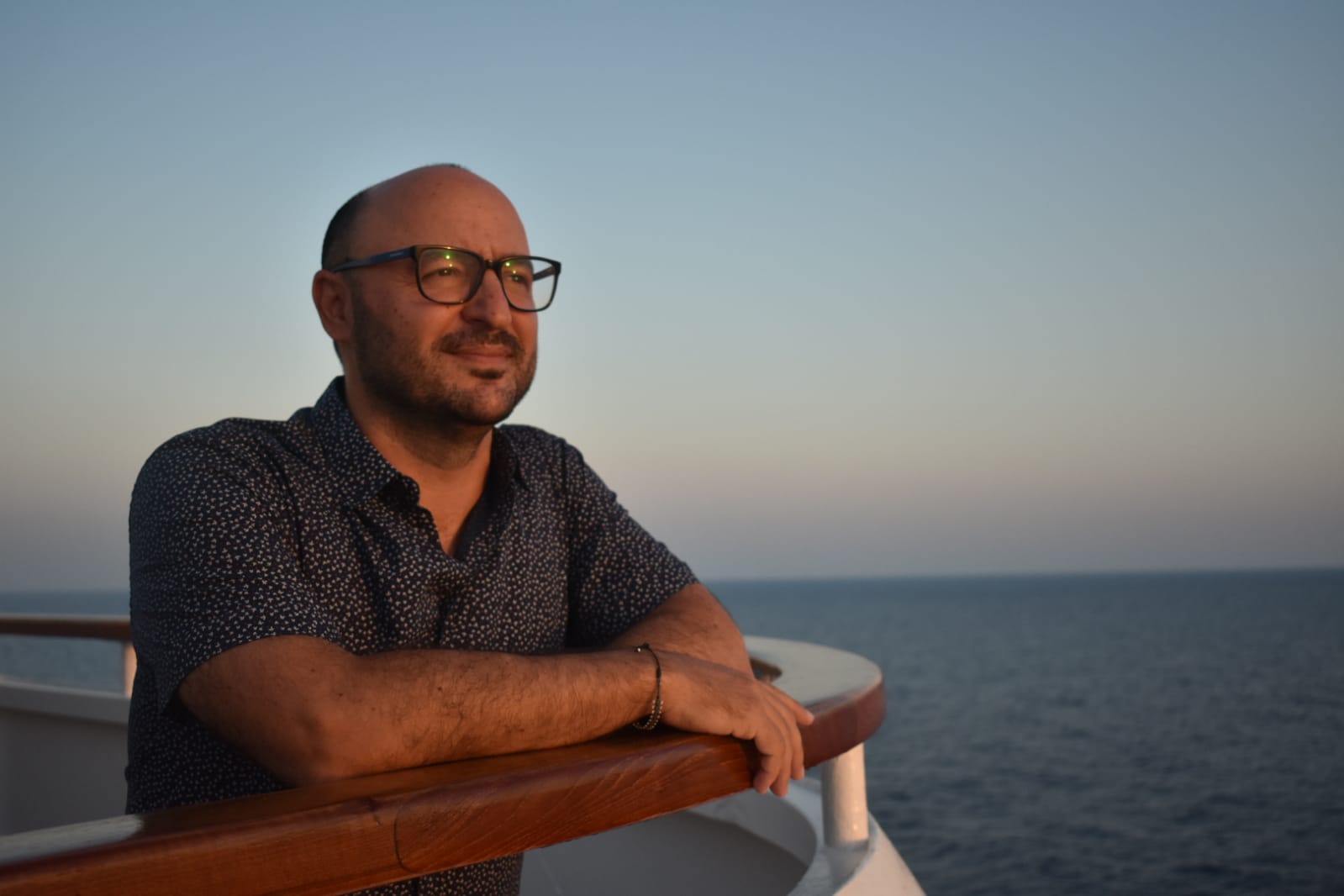ترجمة: بهاء الدين سيوف
تقول قاعدة قديمة في الصحافة: "لا تدع حقيقة الواقع تفسد خبراً ساراً"، هي مقولة مخادعة بطبيعتها وتحتمل الوجهين، لكن في زمن تفشي الأخبار الزائفة، صارت هذه القاعدة تمثل ممارسة اعتيادية، أو حتى نمطا سلوكيا، حين تؤديها بالعكس تماما. المثال القريب عليها رأيناه في مونديال قطر الجاري، حيث كشفت العواطف الرياضية أنواعا أخرى من المشاعر غير النبيلة في بعض الأحيان.
لننظر مثلا إلى مباراة إسبانيا والمغرب يوم الأربعاء الماضي، والتي أسفرت عن فوز المغرب بركلات الترجيح، ما ترتب عليه إقصاء إسبانيا من المونديال. أسود الأطلس كما يُسمّون سطروا التاريخ وأصبحوا أول فريق من العالم العربي - الإسلامي يصل إلى الدور النصف النهائي في كأس العالم.
ما حدث على أرضية الملعب شاهده العالم أجمع، أما ما سيحدث في الخارج، قبل المباراة وبعدها، فقد ترك هامشا كبيرا للتكهنات، "كيف ستتصرف الجماهير المغربية في حال الانتصار، خاصة أولئك المهاجرين المقيمين في إسبانيا؟" بطبيعة الحال سيتصرفون مثل بقية عشاق الكرة في العالم، بمعنى أنهم كغيرهم سيخرجون للاحتفال في أغلبية حضارية كبيرة، تتخللهم أقلية من العناصر غير المرغوب فيها، تلك الفئة التي تترقب أي تجمع بشري لافتعال المشاجرات والتسبب في الأضرار بالمرافق العامة والخاصة.
لكن التحيز الفاضح لدى بعض الصحفيين دفعهم إلى التنبؤ بعكس ذلك تماما، بأن تنقلب النسبة المئوية، كونهم يتحدثون عن المغاربة مع ما يُنسب إليهم أحيانا من همجية أو تخلف، أي أن عددا قليلا منهم سيحتفلون بالانتصار بشكل حضاري، وأن الغالبية العظمى منهم سيشكلون موجة عارمة من الغوغاء لا يمكن احتواؤها.
وكي لا تدع مجالا للشك، فقد سلطت الصحافة الضوء على انتصار المغرب السابق على بلجيكا، الذي دفع بآلاف المغاربة في بلجيكا وجارتها هولندا إلى الشوارع، ما أجبر قوات مكافحة الشغب على التدخل واعتقال العشرات. ومع أن الشرطة الهولندية أكدت أن الاحتفالات اتخذت منحى إيجابيا إلى حد كبير وأن سلوك الغالبية من الجماهير كان جيدا، فإن العناوين الصحفية أصرت على رسم صورة من الفوضى والعنف، والتي من المحتمل أن تتكرر في إسبانيا، ربما بحماسة أكبر.
"ما الذي سيحدث لو اندلعت حربٌ، ولم يذهب إليها أحد؟" تتساءل مقولة قديمة في مجال السّلم. لقد استحق الفريق المغربي الفوز بحسب كل المحللين الرياضيين، وانطلق مشجعوه إلى الشوارع للاحتفال بالنصر، لم تقع هناك أي مشاجرات، فمن أين جاءت الحرب؟ تلك التي أعلنتها - بكثير من الضجيج والتصنع - العديد من الصحف والقنوات التلفزيونية، تلك الحرب التي لم يشترك فيها أحد!!
وسائل الإعلام هذه تحتفظ بمخزونات كبيرة من الصور المألوفة لحاويات محترقة ومعدات ملقاة في الشوارع وتعزيزات أمنية وغيرها، وقد اجتهدت كثيرا في الحصول عليها. قد يكون صحيحا ما قاله الفيلسوف الإسباني الشهير أورتيغا إي غاسيت إن الرياضة هي ذريعة الإنسان كي يمنح الحضارة إجازة لبعض الوقت، لكن هذه المرة بإمكاننا القول إن الحضارة قد حافظت على مكانها ومكانتها طوال الليل.
لقد كانت تلك العناوين مكتوبة مسبقا، حد أنها بدت يقينا لا شك فيه، ولسوء الحظ في الرياضة فإنه لا تكاد تمر مباراة من دون أن تتبعها مشاجرة هنا أو هناك، أو اعتداء على حاوية قمامة أو عمود إنارة، رغم ذلك فإن رؤساء التحرير في تلك المؤسسات فضلوا أن يضعوا أنفسهم محل السخرية، إذ لم تتوفر الأدلة الكافية على اندلاع العنف. إن الصور والفيديوهات بالكاد أظهرت شابا يشعل إحدى المفرقعات، أو مشاجرة هناك، بدلا من أن يصححوا ذلك ويؤكدوا الحقيقة البسيطة الواضحة، أن اليوم قد مر على ما يرام، على عكس الكثير من المباريات في أوروبا، التي قد تنتهي بإصابات بالغة، أو بعدد من الوفيات في بعض الأحيان.
ذلك المرض الذي يعاني منه هؤلاء المتخصصون في الصحافة والإعلام لا يمكن تشخيصه أو وصفه سوى بكلمة واحدة: "عنصرية"، إن التحيز القائم على لون البشرة أو الدين أو أصول الأشخاص يصير مدعاة للشفقة أكثر حين يمتزج بالإحباط الناجم عن الخسارة في مباراة رياضية، أن يجري ذلك عادة في وسائل التواصل الاجتماعي فذلك مؤسف بالطبع، أما أن يصدر الأمر عن صحفي متخصص فذلك يكشف عن أمور أبعد من الغضب والعداء المبطن والهمجية الرياضية.
"لم نولد عنصريين، تعلمنا أن نصير كذلك"، يؤكد الكاتب المغربي الطاهر بن جلون، أما هذا الذي نتعلمه فقد يأتي على شكل محادثات يومية في المنزل أو المدرسة، أو على شكل رسائل يبعث بها رجال السياسة، وبالطبع هذا يشمل الرسائل الصادرة عن وسائل التوصل والإعلام، ربما نسي بن جلون صاحب كتاب "ليلة القدر" أن يذكّرنا أنه حتى في تلك الأجواء يمكننا نبذ العنصرية، بتعطيل آلياتها والتشهير بها، ودعونا لا نفقد الأمل بأن كرة القدم، التي تشكل ملجأ لكثير من المتطرفين، بإمكانها أن تخدم هذه القضية كذلك.















![Palestinian journalists attempt to connect to the internet using their phones in Rafah on the southern Gaza Strip. [Said Khatib/AFP]](/sites/default/files/ajr/2025/34962UB-highres-1705225575%20Large.jpeg)
























